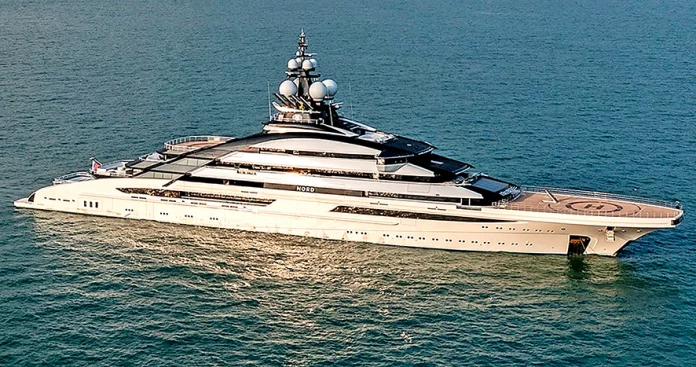South Africa and global superpower the United States of America are embroiled in a storm that is threatening to erupt into a major diplomatic fallout between the two countries.
Sunday World has been told that Pretoria is waging a push-back against what it sees as “bullying” by the US in the wake of the terror alert that Washington issued on Wednesday, plunging Africa’s most advanced economy into panic.
It has emerged that since the outbreak of war between Russia and Ukraine, relations between South Africa and the US have soured.
President Cyril Ramaphosa’s recent visit to Saudi Arabia and the government’s decision to allow a billionaire with close ties to Russian president Vladimir Putin to visit South Africa next month are among the latest vexing issues said to have widened the rift between the two countries.
Accompanied by mineral resources and international relations and cooperation ministers Gwede Mantashe and Naledi Pandor respectively, among other officials, Ramaphosa concluded 17 memoranda of understanding with
Saudi Arabia in areas that include agriculture, fisheries, military industries and health.
Sources in diplomatic and security circles said the deepening of bilateral relations between South Africa and Saudi Arabia have not gone down well with Washington.
US President Joe Biden recently slammed Saudi Arabia following a decision by the oil-producing group Opec to cut down the production of oil. OPEC includes Russia and its decision to slash oil production by two million barrels a day is seen by the US as a move to bolster Russia’s oil sales.
A senior leader serving in Ramaphosa’s national executive said the South African government viewed the terror alert issued as “retaliation”. “The US is responding to the latest events. Remember we had a successful trip to Saudi Arabia. We also refused to be muzzled to stop the Russian billionaire’s yacht from docking in Cape Town. This is retaliation. They really want to push us away from Russia.”
In the alert, the US government claims it received information that terrorists may be planning to conduct an attack targeting large gatherings at unspecified locations in the greater Sandton area in Johannesburg yesterday.
“There is no further information regarding the timing, method, or target of the potential attack. The US embassy has advised staff to avoid crowds of people and other large public gatherings in the greater Sandton area of Johannesburg during the weekend of 29-30 October 2022.”
On Friday, deputy minister in the Presidency Zizi Kodwa said while there is no direct threat of a terrorist attack on the republic, however, the government called on all citizens to remain vigilant as South Africa, like all other countries in the world, remained vulnerable to terrorist attacks. “There is no need to panic. We were not provided with any evidence,” he said.
“South African foreign policy is underpinned by multilateralism and non-alignment. We believe in peaceful resolution of any conflict, including the Russian and Ukraine conflict,” he added.
South Africa is the largest US trade partner in Africa with a total two-way trade of $17-billion in 2019. An estimated 600 American businesses operate in South Africa, which also qualifies for preferential trade benefits under the African Growth and Opportunity Act, among others.
Ramaphosa said on Thursday: “It is unfortunate that the US government issued that type of warning without having had a deep-dive type discussion with us.”
Later that day, Kodwa used his interaction between the State Security Agency and the National Press Council to slam the US for failing to follow protocol.
Deepening the diplomatic storm between South Africa and the US is the approval of a yacht belonging to Russian billionaire Alexey Mordashov to dock in Cape Town on November 9. It has come to light that the Americans requested SA stop the Russian from visiting or seize his vessel, a request that was rejected by Pretoria.
A diplomat in the department of international relations and cooperation said the arrival of Mordashov, a steel and mining magnate sanctioned by the US and European Union (EU), was going to be one of the biggest tests for South African foreign affairs policy.
The source said since the ousting of former president Jacob Zuma, Russia has grown uneasy with its relationship with Ramaphosa.
While SA has strong bilateral ties with the US, it also has historical ties Russia and both are members of Brics (consisting of Brazil, Russia, India, China and South Africa).
“Russia is no longer confident about the sincerity of South Africa. South Africa has not been buying oil and gas from Russia since the EU and US sanctions. South Africa is in a dilemma. We have been too neutral.”
Another diplomat based in Washington said Ramaphosa had managed to make a case why South Africa should not be coerced into fighting the enemies of the US. Presidency spokesperson Vincent Magwenya said on Tuesday:, “There are no UN-imposed
sanctions on the particular individual and therefore South Africa has no legal obligation to abide by sanctions that the US and the EU have decided to impose within specific jurisdictions.”
Follow @SundayWorldZA on Twitter and @sundayworldza on Instagram, or like our Facebook Page, Sunday World, by clicking here for the latest breaking news in South Africa. To Subscribe to Sunday World, click here



